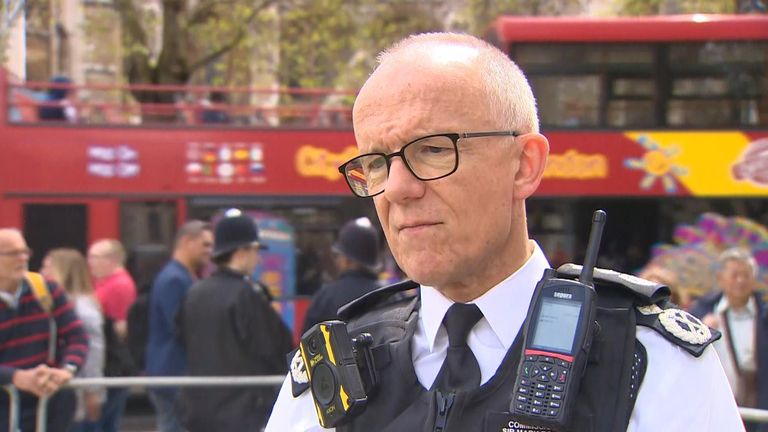Metropolitan Police to use counter-terrorism tactics to catch 100 worst sex predators targeting women in London


Metropolitan Police officers are using counter-terrorism tactics to catch some of the worst predators targeting women on the streets of London.
The force is using the Cambridge Crime Harm Index to assess 35,000 offenders reported each year for crimes against women and girls in a bid to rank the 100 who are most dangerous to the public.
Commissioner Sir Mark Rowley called the strategy “innovative” and described the steps as “front-footed” as he attempts to reform the capital’s police.
Mr Rowley said: “It’s taking the organised crime or terrorism approach to male predatory violence.
“If we go after them proactively, build a case against them, get them off the streets, that protects women and children in London, so that’s an indicator of something more innovative, more front-footed, and how we reform how we police London.”
The Met has come under heavy criticism following internal scandals and officers being found guilty of various crimes including rape, assault and even murder.
The force was called institutionally racist, sexist and homophobic in a report by Baroness Louise Casey after a year-long investigation into the organisation.
Read more:
Met to increase pay for thousands of officers beyond 7% announced by PM
‘Sheriff of Soho’ found guilty of taking bribes
Mr Rowley said the Met was “getting rid of the problem” to form a “healthier organisation focused on serving the public”.
Advertisement
He acknowledged that the road ahead for two or three years would be “bumpy” for the force but was “confident” the organisation would get through it.
Plans to overhaul the police, a £366m two-year scheme dubbed A New Met for London, are being launched with visits to all 32 London boroughs.
Bosses say there will be an increased emphasis on neighbourhood policing in a bid to rebuild public trust.
Some 240 officers out of the Met’s total workforce of around 34,000 will be moved from central to local teams.
There are also plans to recruit 500 more community support officers (PCSOs) and an extra 565 people to work with teams investigating domestic abuse, sexual offences and child sexual abuse and exploitation.
Each borough will have at least one front counter open 24 hours a day under the proposals.